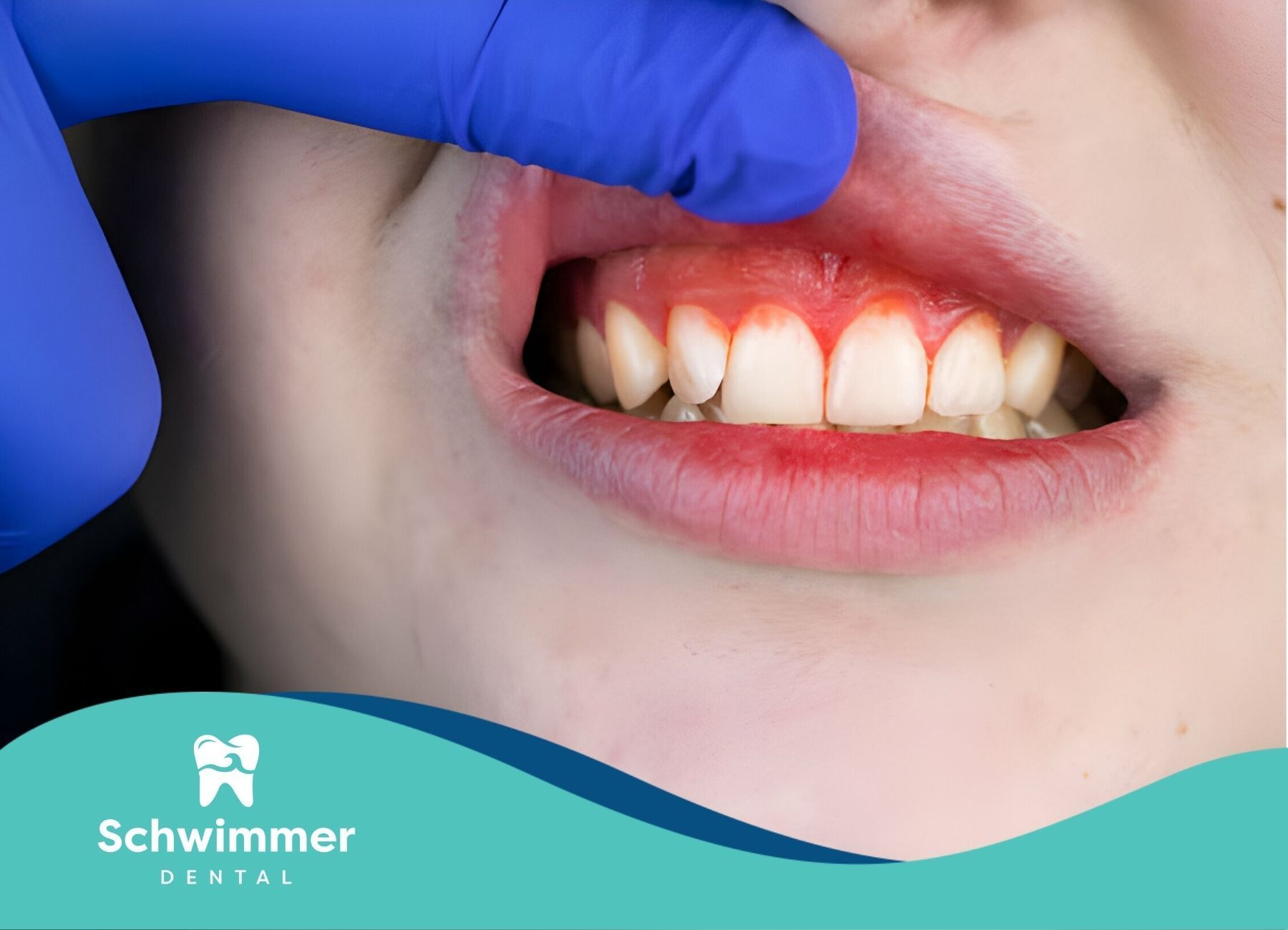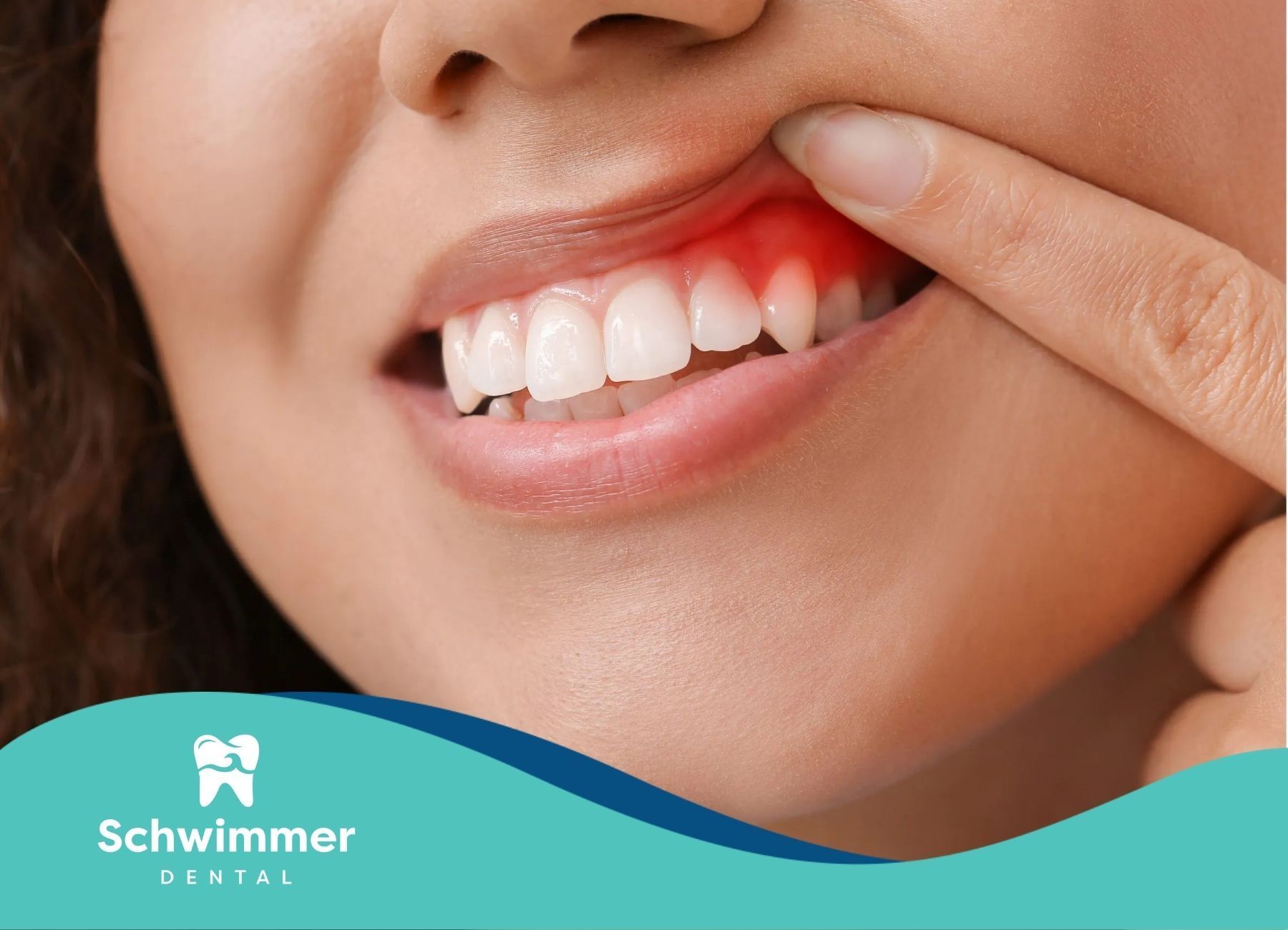Have an appointment? Complete the Intake Form
How Many Times A Day Should You Brush Your Teeth?
Dental hygiene plays an integral role in maintaining overall health, and the foundation of a good oral hygiene routine starts with brushing your teeth. Proper brushing helps to remove plaque, prevent tooth decay, and avoid gum disease. But one key question that often arises is: how many times a day should I brush my teeth?
Brushing frequency is not a one-size-fits-all approach, as it depends on several factors, such as diet, age, oral health needs, and lifestyle habits. This article explores how often you should brush your teeth, the impact of brushing too frequently or infrequently, and how to establish a consistent brushing routine for a healthier smile.
Why Brushing Your Teeth is Important
Brushing your teeth is crucial for several reasons:
Prevents Cavities
Plaque, a sticky layer of bacteria, builds up on your teeth throughout the day. If left unchecked, plaque can turn into tartar, leading to tooth decay and cavities. Brushing helps remove plaque and prevent cavities from forming.
Gum Health
Poor brushing can lead to gum disease, a condition that starts as gingivitis (gum inflammation) and can progress to periodontitis (severe gum disease), leading to tooth loss. Brushing helps to keep your gums healthy and free from infection.
Fights Bad Breath
Proper brushing eliminates food particles and bacteria from the mouth, helping to freshen your breath. Without regular brushing, the bacteria can cause bad breath (halitosis).
Overall Health Benefits
Studies have shown a connection between oral health and overall health. Oral bacteria can enter the bloodstream and affect other parts of your body, such as your heart and lungs. Brushing regularly reduces the risk of these health problems.
How Often Should You Brush Your Teeth?
The Standard Recommendation: Twice a Day
The American Dental Association (ADA) recommends brushing your teeth twice a day—once in the morning and once before bed. This schedule helps maintain optimal oral health and prevents issues like cavities, gum disease, and plaque buildup.
Brushing twice a day ensures that you’re regularly removing food particles and plaque that accumulate during the day and night.
Morning Brushing
Brushing your teeth in the morning is essential for getting rid of the plaque and bacteria that build up in your mouth overnight. This helps freshen your breath and prepares your mouth for the day.
Evening Brushing
Before going to bed, brushing is vital to remove the day’s buildup of food particles, bacteria, and plaque. It’s especially important to brush after dinner to prevent the harmful effects of food particles sitting in your mouth all night, which can contribute to tooth decay.
Is it Safe to Brush More Than Twice a Day?
In some cases, brushing three times a day—after every meal—can be beneficial, especially if you consume acidic foods like citrus fruits or sugary snacks. However, brushing too frequently or too aggressively can lead to negative side effects, such as enamel erosion or gum irritation.
Brushing Too Often
- Brushing your teeth too often or using a hard-bristled toothbrush can lead to
enamel wear. This can make your teeth more sensitive and more susceptible to decay.
- Overbrushingcan also lead to gum recession, which exposes the sensitive roots of your teeth and increases your risk of tooth sensitivity and decay.
When to Brush After Meals
- If you’ve eaten acidic foods or drinks (like citrus fruits, soda, or wine), wait at least 30 minutes before brushing. Acidic food and drinks temporarily soften tooth enamel, and brushing immediately afterward can damage the enamel.
Brushing Technique: The Key to Effective Brushing
While brushing frequency is important, how you brush your teeth is just as crucial. The proper brushing technique ensures you’re effectively cleaning your teeth without causing damage.
1. Use a Soft-Bristled Toothbrush
A soft-bristled toothbrush is gentle on your gums and enamel, while still being effective in removing plaque. Hard-bristled brushes can be abrasive and may damage your enamel and gums.
2. Brush for Two Minutes:
The average person brushes for less than a minute, which is not enough to clean all surfaces of the teeth effectively. Aim to brush for at least two minutes to ensure all areas are properly cleaned.
3. Use Gentle, Circular Motions
Rather than scrubbing back and forth, use gentle, circular motions. This technique helps remove plaque effectively without harming your gums or enamel.
4. Replace Your Toothbrush Regularly
Change your toothbrush every three to four months or sooner if the bristles are frayed. A worn-out toothbrush will not clean your teeth as effectively.
Additional Oral Hygiene Tips
Brushing twice a day is a great start, but a complete oral hygiene routine also includes other important practices:
Floss Daily
Brushing removes plaque and food particles from the surface of your teeth, but it can’t reach the tight spaces between your teeth. Flossing removes debris and plaque from these areas, helping to prevent gum disease and cavities.
Use Mouthwash
An antimicrobial mouthwash can reduce bacteria in your mouth, freshen your breath, and protect your gums. Choose a mouthwash that helps fight plaque and bad breath.
Maintain a Healthy Diet
Limit sugary and acidic foods that can contribute to tooth decay. Eat a balanced diet rich in vitamins and minerals to support strong, healthy teeth.
Visit Your Dentist Regularly
Regular dental check-ups are essential for maintaining your oral health. Your dentist can detect early signs of dental problems and provide professional cleanings to keep your teeth and gums in optimal condition.
Conclusion
The ideal brushing frequency is twice a day—once in the morning and once before bed. However, if you’re prone to cavities or have specific oral health needs, you may benefit from brushing after every meal. Remember, the quality of your brushing technique matters as much as the frequency—use a soft-bristled toothbrush, gentle circular motions, and brush for at least two minutes to get the best results.
At Schwimmer Dental, we are committed to helping you maintain excellent oral hygiene. If you have any concerns about your brushing routine or need professional dental care, don’t hesitate to contact Schwimmer Dental. Our expert team is here to help you achieve a healthy, beautiful smile.
Frequently Asked Questions
Can I brush my teeth three times a day?
Yes, brushing three times a day is fine as long as you’re gentle and use the proper technique. Just be careful not to brush too aggressively, as this can cause enamel wear and gum irritation.
Is it better to brush before or after breakfast?
It’s generally recommended to brush after breakfast to remove food particles and prevent plaque buildup. However, if you eat acidic foods like citrus, wait 30 minutes before brushing to avoid damaging your enamel.
Is it necessary to floss every day?
Yes, flossing is essential for removing plaque and food particles between your teeth, where your toothbrush can’t reach. Flossing once a day helps prevent gum disease and cavities.
Need Assistance? We’re Here to Help
We are dedicated to enhancing your dental health and well-being.
We provide personalized dental care solutions for a confident, healthy smile.
Contact us today for Professional Dental Care.

Our caring staff will help you feel relaxed and comfortable in our state of the art office. We respect your time and pledge to deliver prompt service, backed by the latest knowledge, techniques, and technology.
Email: Office@schwimmerdental.com
Tel: (848) 294-2385
Fax: (732) 899-3347
Address: 1115 Arnold Ave,
Point Pleasant, NJ, 08742
Schwimmer Dental – Website by CWS


